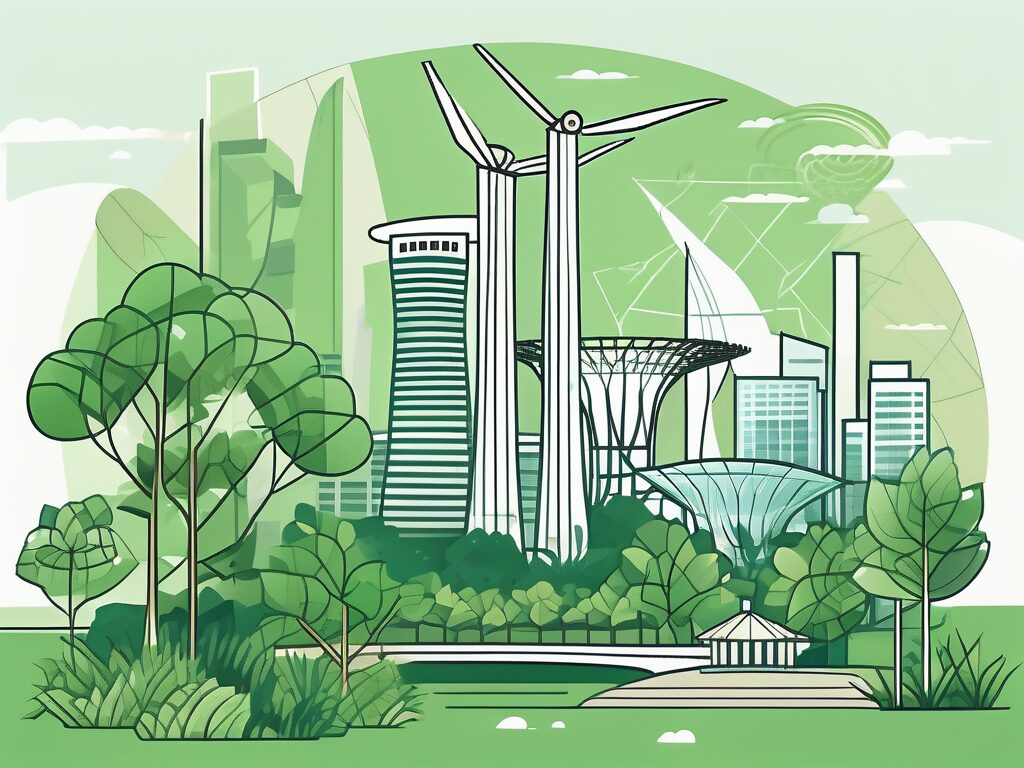Singapore, a bustling city-state known for its impressive skyline and economic prowess, is also making strides in the realm of environmental education. With a growing emphasis on sustainability and green living, the country is committed to instilling these values in its citizens from a young age. This article delves into six key aspects of environmental education in Singapore, exploring its significance, the strategies employed, and the impact it has on the community.
1. The Importance of Environmental Education
Environmental education is crucial in today’s world, where the effects of climate change and environmental degradation are increasingly evident. It is not just about understanding the environment, but also about fostering a sense of responsibility and commitment to its preservation.
In Singapore, with its limited natural resources, the importance of environmental education is even more pronounced. The city-state’s survival and prosperity depend on efficient resource management and sustainable practices, making environmental education a key aspect of its national curriculum.
2. Incorporation into the National Curriculum
Singapore’s Ministry of Education (MOE) has taken significant steps to integrate environmental education into the national curriculum. This is not confined to science subjects alone; it is woven into various disciplines, encouraging students to view environmental issues from multiple perspectives.
For instance, in Geography, students learn about sustainable development and environmental management. In Social Studies, they explore the social and economic implications of environmental issues. This cross-disciplinary approach fosters a holistic understanding of the environment and its interconnectedness with other aspects of life.
Environmental Education in Primary Schools
In primary schools, environmental education is introduced through subjects like Science and Social Studies. Students learn about basic environmental concepts such as the life cycle, food chains, and the importance of conservation. They also participate in activities like recycling projects and nature walks, which allow them to experience and appreciate the environment firsthand.
Environmental Education in Secondary Schools
In secondary schools, environmental education becomes more in-depth. Students delve into topics like climate change, biodiversity, and energy conservation. They also undertake projects that require them to apply their knowledge and skills in real-world contexts, such as conducting energy audits or developing sustainable solutions for their schools.
3. Extracurricular Activities
Beyond the classroom, schools in Singapore offer a plethora of extracurricular activities that complement environmental education. These include environment-themed clubs, field trips to nature reserves, and participation in national competitions like the National Environment Quiz.
These activities provide students with hands-on experiences and opportunities to apply what they have learned in real-world contexts. They also foster teamwork and leadership skills, as students work together to plan and execute projects or compete against other schools.
4. Community Involvement
Environmental education in Singapore extends beyond the school gates. Various initiatives encourage students to take action in their communities and contribute to environmental conservation. For example, the National Parks Board’s Community in Bloom programme encourages schools to create their own gardens, promoting biodiversity and fostering a love for nature among students.
Furthermore, schools often collaborate with local organisations on environmental projects. This not only broadens students’ learning experiences but also strengthens community ties and promotes a collective responsibility for the environment.
5. Teacher Training
Teachers play a pivotal role in environmental education. In Singapore, they are equipped with the necessary knowledge and skills through professional development courses and workshops. These cover a range of topics, from environmental science to pedagogical strategies for teaching environmental issues.
Moreover, teachers are encouraged to attend conferences and seminars, where they can learn from experts and share best practices with their peers. This continuous learning ensures that they are up-to-date with the latest developments in environmental education and can effectively guide their students in this important area.
6. Future Directions
Looking ahead, Singapore is set to further strengthen its environmental education efforts. The MOE has outlined plans to enhance the curriculum, provide more professional development opportunities for teachers, and increase partnerships with external organisations. This reflects the country’s commitment to nurturing environmentally literate citizens who can contribute to sustainable development.
Moreover, with the advent of digital technology, there is potential for more innovative approaches to environmental education. For instance, virtual reality could be used to simulate environmental scenarios, allowing students to explore and understand environmental issues in a more immersive way.
In conclusion, environmental education in Singapore is a multifaceted endeavour that involves not just schools, but also the community and the government. It is a testament to the country’s recognition of the importance of environmental stewardship and its commitment to nurturing future generations who are equipped to face environmental challenges.
Elevate Your Role in Environmental Education with IPGCE
As Singapore continues to champion environmental education, the demand for qualified educators with a global perspective and a deep understanding of sustainability grows. IPGCE is your pathway to becoming part of this transformative movement. Our International Postgraduate Certificate in Education equips you with the advanced qualifications necessary to overcome the barriers of stringent international school requirements. With iPGCE, you’ll not only increase your chances of securing interviews by 50% but also enhance your career progression, with a 45% boost in promotion rates and a significant salary increase. Join a vibrant professional community, gain a solid understanding of global education systems, and balance your professional development with your current commitments through our flexible online study options. Join the UK’s #1 Teacher Training Course today and be at the forefront of environmental education.

